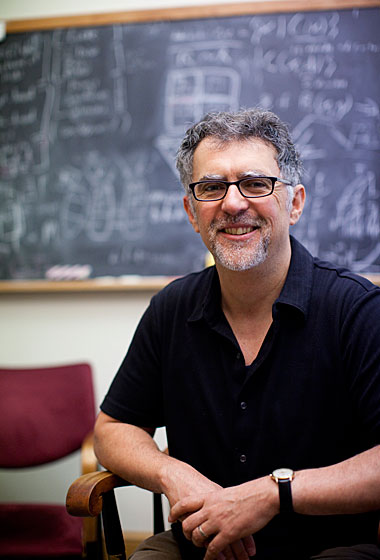搜索结果: 1-8 共查到“哲学 Thinking”相关记录8条 . 查询时间(0.125 秒)
Using network thinking to understand transmission and innovation in ancient societies
innovation archaeology network Aegean Bronze Age wheel materiality long-term
2016/6/14
I begin not with an ancient innovation, but with a modern one with which we are all familiar: the car. And I want to imagine how an archaeological perspective on this innovation might proceed. First, ...
Thinking Dynamically About Biological Mechanisms:Networks of Coupled Oscillators
dynamics dynamic mechanistic explanation decomposition recomposition computational modeling circadian rhythms
2016/5/27
Explaining the complex dynamics exhibited in many biological mechanisms requires extending the recent philosophical treatment of mechanisms that emphasizes sequences of operations. To understand how n...
Thinking Adaptive: Towards a Behaviours Virtual Laboratory
Behaviours Virtual Laboratory Thinking Adaptive
2015/7/31
In this paper we name some of the advantages of
virtual laboratories; and propose that a Behaviours
Virtual Laboratory should be useful for both biologists
and AI researchers, offering a new perspe...
In her article, "Thinking and Moral Considerations," Hannah Arendt provides a provocative approach to the question of evil by suggesting that banal evil—the most common kind—may arise directly from th...
不能把人的认知都归功于大脑,无视身体和身体思维的认知价值。其实正是人的身体结构、身体欲望、身体行为、身体意向、身体爱好、认识冲动、好奇心、求知欲、潜意识、自由意志、身体场、知觉场,以及在此基础上形成的“身体思维”或“身体智能”,一起构成认知的源泉和机制。因此身体思维才是大智慧,才是一切认识、文化艺术、科学技术的起点;才是获得知识、成就事业、完善人性、推进人类发展的基础。

The idea of a distributed mind among animals is not new, according to Peter Godfrey-Smith, who focuses his efforts on the philosophy of science. Experiments indicate that when a bird learns a skill us...
We often know that we are thinking, and what we are thinking about. Here ‘thinking’ is not supposed to be an umbrella term for cognition in general, but should be taken in roughly the sense of ‘a penn...
In this essay, we explore a non-standard model of the unconscious, what Gilles Deleuze and Félix Guattari call the “productive unconscious,” to correct the too-often reductive tendencies of psychoanal...

